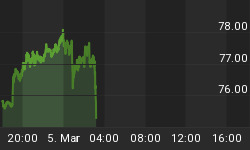Nothing sharpens the sight like envy. Many legislators who are enjoying six-figure remunerations and seven-figure benefits are dismayed about corporate compensation. They resent the fact that many chief executive officers (CEOs) are raking in multimillion-dollar pay packages while lawmakers subsist on such meager fare. Many CEOs, in their judgment, are greedy executives who thrive undeservedly on corporate profits and stockholder equity.
Surely, many people are uneasy about the remuneration of CEOs, but they cannot deny that it is subject to the same competitive pressures as any other market pay. It is determined by the forces of demand and supply, just like any other wage or salary, and may consist of a base pay plus equity-based incentives such as bonuses, stock options, and other equity vehicles. Unprotected by professional permits and licences but very alluring in prestige and reward, the CEO position is one of the most competitive stations in the land subject to continuous examination and evaluation. It is more competitive by far than any political office.
Economists examining the income may distinguish between three different sources that contribute to CEO pay. Managerial labor is a scarce factor of production like any other labor, which companies buy offering wages, salaries, fees, or whatever they may be called. Seeking to buy it at the cheapest price, the offer must be high enough to take the executive away from other competing companies. The upper limit of the bidding is determined by the expected contribution the executive may make to the company; the lower limit is set by the bids of competing companies. A company that pays more than the market price makes a gift of stockholder income or property; a company that pays less does not attract the best available manager.
CEOs who are the founders and owners of successful enterprises are true entrepreneurs. Ever searching for new ways of serving their customers, they invent, innovate, and improve, earning entrepreneurial profits. In American economic history there were a few whose names and exploits are familiar to the public: John D. Rockefeller, Andrew Carnegie, J. P. Morgan, and Henry Ford revolutionized their industries. But they were not alone in shaping the American economy and creating millions of jobs. Countless less eminent entrepreneurs built stores and factories, drilled oil and gas wells, founded private schools and colleges, and gave employment to workers. Nearly every community still has its entrepreneurs who, bold and original, recognize economic need and seek to serve it. They are laboring and leading the way even today.
Few chief executive officers of large companies are true entrepreneurs. Most are corporate employees who learned their rudimentary management skills in business schools and law schools, then moved up through the ranks of management until they reached the top. They are known for their managerial skills, their good appearance and lucid eloquence, and especially their political finesse like that of their counterparts in public office.
CEO remuneration clearly confirms this observation. In times of economic stability and steady growth it may consist of some 80 percent salary and 20 percent profit from stock options which American corporations may grant their leading executives as an incentive for achieving certain objectives in sales or profits. The profit share signals entrepreneurial ability, the salary reflects the market pay for services rendered. During the 1990s when the Federal Reserve happily blew financial bubbles and equity prices soared to unprecedented levels, most CEOs reaped unexpected windfalls. While the Fed lowered its discount rate seven times and thus gave rise to the most spectacular bond and stock market boom ever, CEO stock options and other equity incomes soared from 20 percent to two-thirds or even three-fourths of CEO income. Corporate income did not rise significantly, but the price-earnings ratios of cyclical and high-tech securities soared beyond the bounds of reason. Fueled by Fed credit newly created, corporate options poured fabulous wealth on thousands of CEOs, on the entrepreneurs as well as on the managers. Sadly, the mansions, yachts, and private jets bestowed on CEOs were unearned, consisting of stockholder income or even stockholder equity; they were "bubble lucre".
A few corporate executives who lacked not only entrepreneurial talent but also honor and virtue did not want to be left behind and, therefore, concocted fraudulent earnings reports that lifted their price-earnings ratios and inflated the bubble lucre. Similarly, the CEOs of quasi-private corporations, such as the stock exchanges, caught the bubble fever and seized as many riches as they could. To judge them properly, we must not overlook the governors of the Federal Reserve System who blew the bubbles and created the temptations.
















